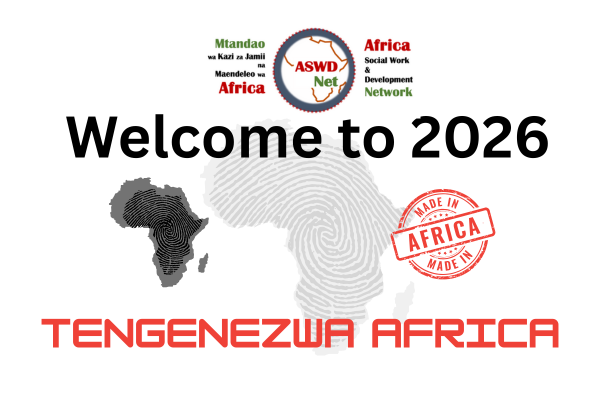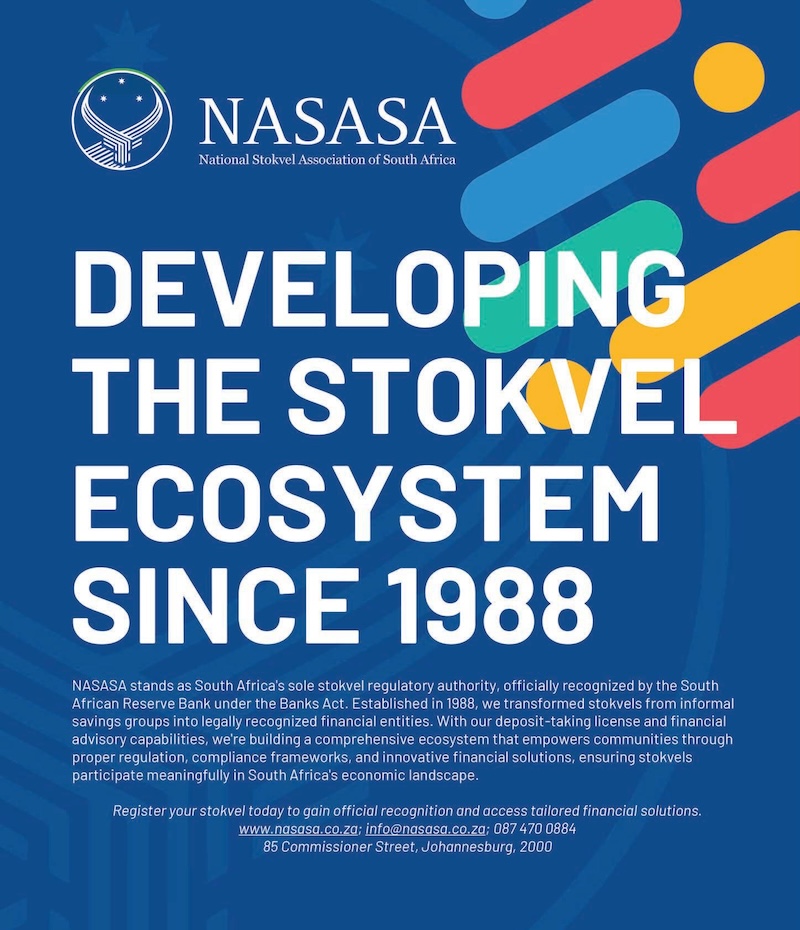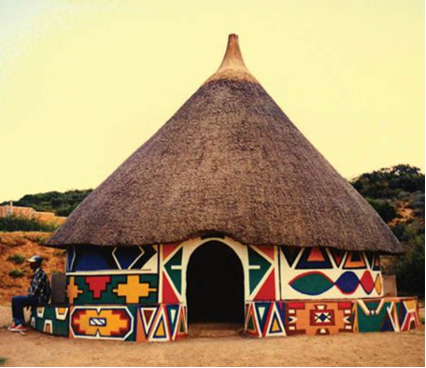JOURNAL OF DEVELOPMENT ADMINISTRATION (JDA)

ISSN (Print): 2218 4899 ISSN (Online) 2788-8169
Editor
Dr. Jacob Rugare Mugumbate, Institute of Development Administration, Harare, Zimbabwe & University of Wollongong, Australia, jmugumba@uow.edu.au
Editorial Board
Associate Professor Moffat C. Tarusikirwa, Teacher Development, Zimbabwe Open University, tarasukirwam@zou.ac.zw
Dr. Chamunogwa Nyoni, Department of Social Work, Bindura University of Science Education, Zimbabwe, cnyoni@buse.ac.zw
Dr. Edmos Mtetwa, Department of Social Work, University of Zimbabwe, emtetwa@sociol.uz.ac.zw
Professor Kefasi Nyikahadzoyi, Environment Climate and Sustainable Development Institute, University of Zimbabwe, knyikahadzoi@arts.uz.ac.zw
Mr. Jotham Dhemba, Sociology Social Work, University of Eswatini, jdhemba@uniswa.sz
Professor Leonorah T. Nyaruwata, Education Management and Policy Studies, Zimbabwe Open University, nyaruwatal@zou.ac.zw
Frequency: Quarterly (4 times a year)
Access and Fees: Open Access, No author or page fees
Licensing: Licensed under a Creative Commons Attribution-Non-commercial 4.0 International License (CC BY-NC 4.0)
Archiving: ASWNet
Copyright: Authors
Publisher: Institute of Development Administration (IDA), 43 St David Road, Hatfield Harare, Zimbabwe. Tel: 04571237. Email: asw@africasocialwork.net
Manuscripts can be submitted at any time. All articles are open access. Below you can read the journal policy and access buttons for manuscript guidelines and to submit an article.
Journal Policy
Aim
People centred – The Journal of Development Administration publishes papers that have implications for African development. The journal is people centred because we believe in people centric approaches to development. This is development with a human face. By putting people at the centre of development, practitioners, governments and agencies have greater chances of taking people out of poverty. This bottom-up approach to understanding poverty, planning against it and implementing poverty reduction strategies is seen as the best recipe for development.
Scope
The Journal considers articles from a wide variety of interest areas and from a wide spectrum of disciplines. The editor works with an editorial team from across the globe derived from development sectors mainly in the social sciences. Specific areas covered include but are not limited to development management; resource mobilisation and fundraising; inclusive development; sustainable development; disability and development; gender and development; poverty; sustainable development; social services and development; human development; HIV/AIDS; child development; counselling; rural development; governance; disaster management; agriculture and livelihoods; and Information and Communication Technologies (ICTs).
Types of manuscripts
The Journal accepts manuscripts in the form of original research reports, research summaries, book reviews, literature review articles including systematic reviews, think pieces, reports of practice and original frameworks. Other forms of papers may be published at the discretion of the Editor.
The JDA uses a double-blind peer review process for all its content. Reviewers are experts in the field of development administration. No manuscript is guaranteed for acceptance at submission. All manuscripts will be peer reviewed and only after peer review are we able to make a decision to accept submitted work.
On submission, the manuscript is screened by the editors. If it is suitable for the journal, it is sent to two reviewers. The manuscript will be anonymised, and the reviewers will not be known to each other and to the author.
Authorship and contributorship
We make every effort to avoid multiple submissions, redundant publications and ghost/guest writers. A declaration must be made by authors to the effect that co-authors took part in the research process, and that their inclusion to the publication has been gained and that they are not ‘ghost’ or ‘guest’ writers.
The journal is open access and therefore freely available online through ASWNet and other sites. This means that readers are not required to pay a fee or to subscribe to read our articles. Articles will be open access immediately after being published. Authors are required to agree with this open access policy which enables unrestricted access and reuse of all published articles. Users are allowed to copy and redistribute the material in printed or electronic format and build upon the material, without further permission or fees being required, provided that appropriate credit is given.
Generally, readers have immediate free access to articles, permitting them to read, download, copy, distribute, print, search, or link to the full texts of articles, crawl them for indexing, pass them as data to software, or use them for any other lawful purpose as recommended by the Directory of Open Access Journals (DOAJ).
Publishing schedule
The journal is published 4 times a year.
We deposit our main articles with the ASWNet for electronic backup and preservation in the event a journal is no longer published shall be clearly indicated.
Authors are strongly encouraged to deposit their published articles in their institutional (academic or professional) repositories that promote open access.
There are no fees or charges that are required for manuscript processing and/or publishing materials in the journal. The journal is financially supported by the Institute of Development Administration.
Originality, plagiarism and acknowledgement of sources
Authors will submit only entirely original works, and will appropriately cite or quote the work and/or words of others. Plagiarism will not be tolerated and will be checked electronically or manually.
Data sharing and reproducibility
Authors should be prepared to make data available when requested to help with the review process. We encourage the use of reporting guidelines and registration of reviews and other study designs according to standard practice in the field.
Intellectual property
The editor will be alert to intellectual property issues and work with their publisher to handle potential breaches of intellectual property laws and conventions.
The author holds copyright to all published work. The author can re-use parts of the published article for their future research, use the article for teaching, presentations or deposit in their institutional repository or non-commercial archives.
The author guarantees the publisher that they have submitted original work, the work has not been submitted elsewhere or will not be submitted elsewhere in future for publishing, it is not a product of unethical practice and all third part information included has been acknowledged appropriately.
The author licenses the publisher to edit, publish in any media, reproduce, distribute the article, translate, edit, adapt and enforce copyrights on behalf of the author.
Our content is licensed under a Creative Commons Attribution-Non-commercial 4.0 International License which allows others share (copy and redistribute the material in any medium or format) and adapt (remix, transform, and build upon the material) but not to make commercial use of it (non-commercial). Appropriate credit must be given (attribution), a link to the license provided, and changes indicated if any.
Submission Instructions
Detailed submission guidelines are available here. Submit your manuscript to asw@africasocialwork.net as a single page containing:
Title
Abstract
Key words
Author names and affiliations
Body of the manuscript
List of references
Declarations (see below)
Declarations
We ask writers to declare conflict of interest, authorship, ethical approval and funding sources and also to include acknowledgements, a statement indicating the originality of the work and confirmation that the work submitted shall not be submitted (or has not been submitted) to another publication unless rejected or withdrawn. A declaration must also be made to the effect that co-authors took part in the research process, and that their inclusion to the publication has been gained and that they are not ‘ghost’ or ‘guest’ writers.
Advertising and Marketing
We do not take adverts in the journal or web page of the journal. We market our journal through a newsletter and the website. Our marketing is not related in any way to editorial decision making and is kept separate from the published content. At times we send emails to market the journal. We use an existing email list and we do not send inappropriate messages to solicit for manuscripts. Our marketing is well targeted, and unobtrusive. Any information that we provide is vetted to ensure that it is truthful and not misleading for readers or authors.
Publication Ethics and Malpractice
Our Publication Ethics and Malpractice Statement is available on this webpage.
The work of the People Centred – Journal of Development Administration is guided by the core practices of the Committee on Publication Ethics (COPE) in relation to dealing with allegations of misconduct; authorship and contributorship; complaints and appeals; conflicts of interest or competing interests; data and reproducibility; ethical oversight; intellectual property; journal management; peer review processes and post-publication discussions and corrections. We adhere to ASWNET’s African Research Ethics and Malpractice Statement (AREMS) in relation to African ubuntu-inspired ethics and roles and responsibilities of those involved in research.
Malpractice may constitute any or more of the following:
- Data or research fraud (manipulation of data or reporting research that has not been done)
- Contributor fraud (adding people who have not contributed significantly as co-authors or not recognizing those who contributed)
- Plagiarism
- Simultaneous submission
- Undisclosed conflict of interest or competing interest
- Researcher, editor or reviewer bias (influencing the research process in any way that breaks research ethics)
We acknowledge the challenges African writers face in accessing ethics review boards committees (e.g. it is at times costly and review boards may not be there or functional) and in accessing research funding but we do not see this as an impediment to ethical practice.
Process for Identification of and Dealing with Allegations of Research Misconduct and Malpractice
The Institute of Development Administration (publisher) and editors shall take reasonable steps to identify and prevent the publication of papers where research misconduct has occurred, including but not limited to plagiarism, citation manipulation, and data falsification/fabrication, among others. In no case shall our journal or its editors encourage such misconduct, or knowingly allow such misconduct to take place. In the event that we are made aware of any allegation of research misconduct relating to a published article in the journal, we shall follow COPE’s guidelines in dealing with allegations.
Unethical behaviour may be identified and brought to the attention of the editor and publisher at any time, by anyone. Whoever informs the editor or publisher of such conduct should provide sufficient information and evidence in order for an investigation to be initiated. All allegations should be taken seriously and treated in the same way, until a successful decision or conclusion is reached. Every reported act of unethical publishing behavior will be considered, even if it is discovered years after publication.
We promote research ethics to prevent malpractice. Some of the actions that we can take when ethics have been broken are:
- Communication – informing authors or reviewers and discussing the issue at hand.
- Clarify – a decision could be taken to clarify circumstances.
- Corrections (erratum or addendum/corrigendum) – a decision could be taken to correct the paper.
- Erratum – compile and disseminate a list of errors.
- Addendum (addenda) (also known as orrigendum (corrigenda)) – additional information added to a publication.
- Retractions – a decision could be taken to retract the paper.
- Apologise – an apology could be offered orally or in writing.
- Inform – the funder, the institution, the participants, other journals or relevant Ethics Review Board.
- Compensation – where participants or contributors or communities were not adequately compensated, it is recommended to correct this by compensating appropriately.
- Settlement – where harm has occurred, it is recommended to provide resources needed to address the harm presently and in future.
Complaints and Appeals
The editor will respond promptly to complaints and should ensure there is a way for dissatisfied complainants to take complaints further. This mechanism should be made clear in the journal and should include information on how to refer unresolved matters to COPE. The editor will follow the procedure set out in the COPE flowchart on complaints.
Conflict of Interest and competing interests
- Any financial interests must be reported by authors.
- Privileged information or ideas obtained through peer review will be kept confidential and not used for personal gain by the editor.
- The editor or member of the editorial board will not handle a manuscript that they have written, o-authored and contributed in any way.
- The editor will require all contributors to disclose relevant competing interests and publish corrections or withdraw the published work if competing interests are revealed after publication.
Post-publication Discussions and Corrections
Our journal will allow debate post publication on the webpage and through letters. Debate may result in correcting, revising or retracting of articles after publication.
When an author discovers a significant error or inaccuracy in his/her own published work, it is the author’s obligation to promptly notify the journal editor or publisher and to cooperate with the editor to retract or correct the paper in form of an erratum.
Ethical Oversight
- We will not publish work where there is no consent to publish.
- We will consider more carefully publications focusing on vulnerable populations.
- We will request authors to have ethics approval for their research that involves ethical human beings or animals.
- We will handle all data in high confidence.
- Our marketing practices will be ethical, and will be reviewed regularly by the board.




You must be logged in to post a comment.